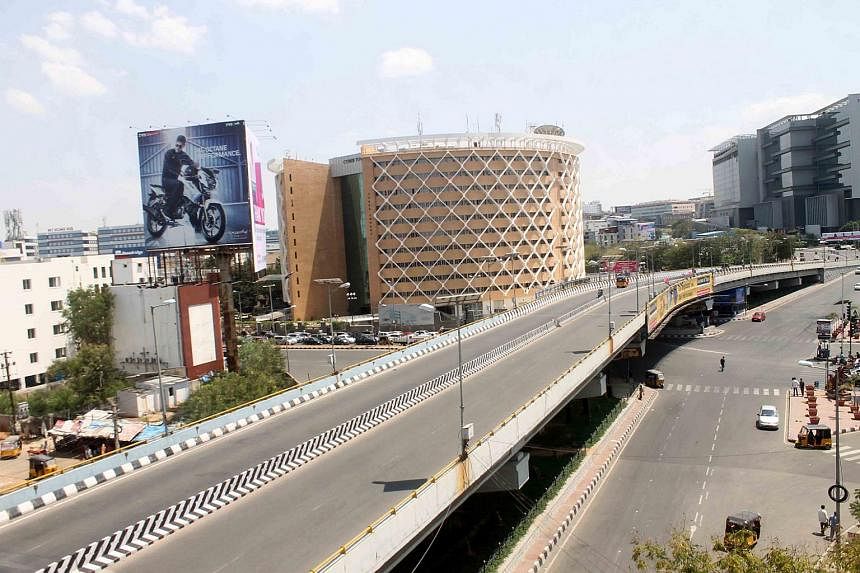India's Prime Minister Narendra Modi on Thursday launched the Smart Cities Mission, a scheme to create 100 of such cities in the country by 2022, in hopes of spurring economic growth and creating jobs.
The plan is part of Mr Modi's promise ahead of his election to premier last year, and is in response to estimates that the urban population will grow from 31 per cent to 50 per cent by 2050.
Singapore is one of the countries that India hopes to collaborate with on the ambitious plan.
Here are some things to know about the project:
What are smart cities?
Smart cities have been defined as those that have basic infrastructure to give their residents a decent quality of life, including adequate water and electricity supplies, good sanitation, efficient public transport, Internet connectivity, affordable housing and a clean and sustainable environment.
They should also strive to do this via applying smart solutions to utilise available funds and resources efficiently.
Examples of smart solutions are renewable energy sources, green buildings and intelligent traffic management systems.
These cities should engage residents by ensuring they are safe to live in, providing adequate avenues for addressing grievances, disbursing information in a timely manner and allowing for citizen participation in city planning.
The 100 smart cities, according to the Indian government, will be created by upgrading infrastructure in existing cities and creating greenfield development around them.
How will the cities be chosen?
The first 20 smart cities will be chosen by the end of this year through a nationwide competition. Another 40 per year will be chosen in the next two years.
Mr Modi has said that for the first time, a bottom-up approach is being taken, as the citizens themselves will choose the smart cities.
But the government will cap the number of smart cities for each Indian state based on population.
Some of the of cities proposed by the Cabinet to be upgraded include Mumbai, Kolkata, Chennai, Bangalore, Hyderabad and Jaipur.
What are some of the challenges expected?
Among the challenges facing the government are attracting private funding and finding capable leaders at the city level to implement the plans, said experts.
The federal government alone is looking at spending 480 billion rupees (S$10 billion) via a private-public partnership model, but an independent estimate by KPMG has put the cost of the project at above US$1 trillion (S$1.3 trillion).
Some officials like former urban development secretary M. Ramachandran have also expressed doubts that the city leadership will be able to formulate concrete plans for their cities and get resources.
The project has also faced ridicule from India's opposition Congress party, who has slammed it as elitist.
How in Singapore involved in the project?
Urban Development Minister Venkaiah Naidu yesterday listed Singapore among a host of countries that India is hoping to collaborate with on the project.
Last year, as a way of furthering Singapore-India ties, Singapore had already offered its help to build smart cities in India, and its as Centre for Liveable Cities is preparing a detailed masterplan for Amaravati, Andhra Pradesh's new capital city. The Republic aims to help India by offering its knowledge and planning ability.
Singapore is also setting up skill development centres by sending its personnel to India to train the personnel there.
But Singapore is the not the only country that has shown interest. "Seventeen to 18 countries have shared interest in the smart cities project," Mr Naidu added on Monday.
Sources: Times of India, India TV News, India today, New Indian Express, Straits Times archives


